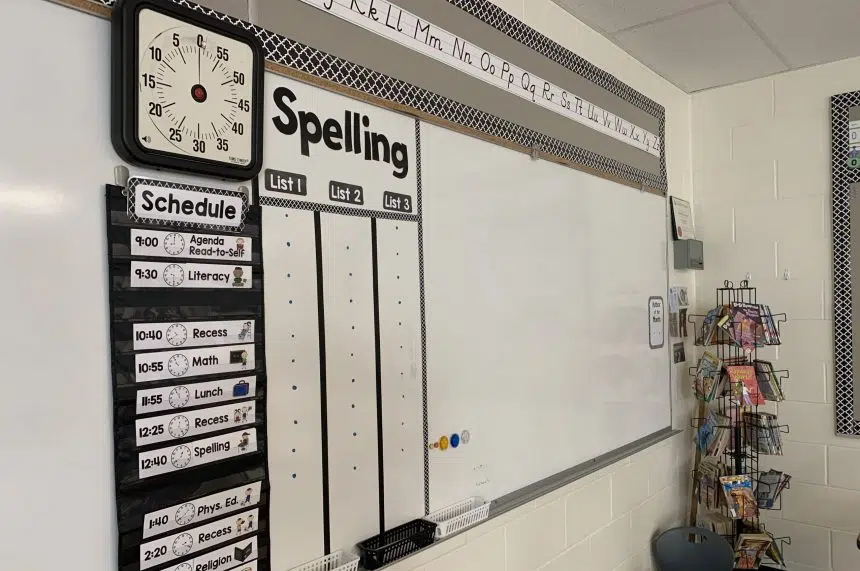Higher-ups in Saskatchewan’s education system are not happy with the provincial budget.
The province announced $3.8 billion for schools on Wednesday, an increase of 1.3 per cent from the previous year.
While that is more money, the head of the teachers’ union doesn’t think it’s nearly enough.
Patrick Maze, president of the Saskatchewan Teachers’ Federation, shared his thoughts after the budget was delivered.
“It’s a disappointing day,” he said. “Government had an opportunity to set students up for success and unfortunately, this is another budget that doesn’t meet enrolment increase pressures and doesn’t meet inflationary pressures.
“School divisions are going to have some really difficult decisions going forward to make ends meet.”
So what specifically would Maze like to see done that would need more funding?
He said some of the needs are different between schools in cities and those in rural areas.
“In rural Saskatchewan, better access to speech language pathologists (and) educational psychologists (is needed) in order for students to be able to be properly supported, and then also having better support so we don’t have the situation as much of multi-graded classrooms,” Maze began. “In urban centres, often it’s high class sizes.”
Overall, he’s not happy with the timing of what he sees as a small increase.
“We went into the pandemic with all kinds of pressures in our educational system … The pandemic only worsened things, and now here we are, supposedly coming out of the pandemic and yet still shorting our classrooms. So it’s really a concern and it’s a sad day for our students,” he finished.
The province’s 27 school divisions are to receive $1.99 billion is operating funding, which includes funds to cover the two per cent salary increase for teachers that already had been agreed to.
The money in the budget includes $6 million for learning supports. In addition, there’s $7 million for 200 more full-time educational assistants.
The Saskatchewan School Boards Association (SSBA) agreed with Maze’s assessment of the budget.
“Boards have worked very hard to find efficiencies with buildings, transportation and office procedures — but when the operational funding doesn’t cover inflationary costs, the dollars aren’t there to pay for any investment or additional services that students need,” the association said in a news release.
It’s a problem that SSBA president Shawn Davidson said isn’t a new one.
“We have been advocating for adequate, sustainable and predictable operational funding for quite some time and we have noticed that the ability of boards to deliver services to students has been eroded over the last several years,” he said in the same release.







